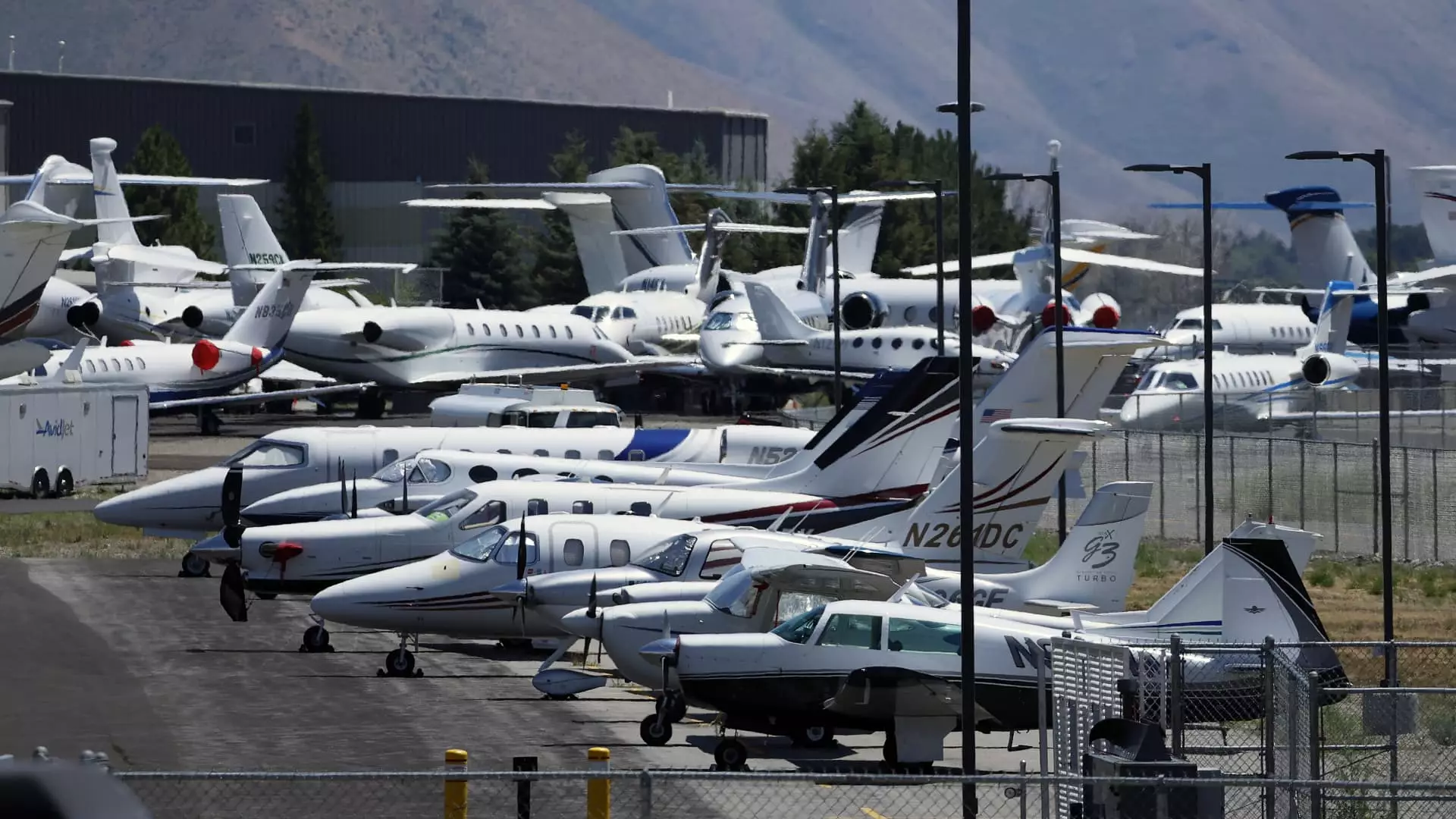In recent years, the allure of private jets has often been dismissed as a frivolous symbol of excess, yet recent policy shifts suggest a deeper, more troubling dynamic at play. The federal government’s decision to reinstate bonus depreciation for business jets may seem like a savvy move to stimulate economic activity, but beneath this veneer lies a troubling normalization of wealth inequality and a blatant national misallocation of resources. This tax provision, designed to incentivize business investments, instead primarily benefits the ultra-rich, enabling them to write off entire jet purchases at a stroke. While some might celebrate this as a boost to innovation or enterprise, it more accurately reveals how economic policies favor the privileged at the expense of societal wellbeing.
The recent surge in private jet sales, predicted to be driven by the accelerated write-offs, exposes an unsettling truth: for the wealthiest, tax incentives serve more as a means to preserve and amplify their status than a genuine investment in economic productivity. The cycle effectively transforms luxury acquisitions into opportunities for tax mitigation, turning the act of jet ownership into a strategic financial maneuver rather than a necessity. Such policies echo a broader pattern where the financial system’s priorities are skewed—favoring convenience and status symbols over sustainable growth, social responsibility, or environmental concerns.
The Cost of Comfort: A Reflection of Societal Imbalance
What does it mean when a government facilitates a surge in private jet ownership? It signifies a world where the valuation of opulence is normalized and even encouraged by fiscal policy, despite mounting evidence of the disparities it inflates. The private jet industry, which saw explosive growth during the pandemic, is now grappling with the reality of declining demand and increased maintenance costs—a reflection of overreach and unrealistic expectations. Instead of a genuine market correction, the current environment is being propped up temporarily by tax loopholes, disguising a fundamental imbalance: the wealthy grow wealthier, while the middle and lower classes bear the environmental and social costs.
This pattern fuels a cycle of superficial prosperity that is detached from the realities faced by the broader population. As the wealthy rush to capitalize on these tax benefits, the question arises—who truly benefits from such policies? The answer seems to be the already privileged few, who use government incentives to secure further privilege. Meanwhile, the public bears the brunt of increased environmental degradation, urban congestion, and a widening gap between the haves and the have-nots. These policies reinforce a system that rewards excess rather than addressing the core needs of society.
Tax Loopholes as a Weapon for Wealth Preservation
The reinstatement of bonus depreciation for private jets exemplifies a larger phenomenon: the strategic use of tax loopholes to safeguard and grow wealth. For the ultra-rich, tax laws have become a playground, turning what should be productive contributions into personal profit centers. Rather than encouraging genuine investment or innovation, these policies often serve as tools for wealth preservation. The timing of the surge—potentially peaking this fall—illustrates how fiscal policies are exploited for strategic advantage, with wealthy individuals and corporations planning their purchases based on tax impacts rather than operational needs.
This deliberate alignment of financial decisions with tax advantages undermines the principles of equitable economic growth. It creates a façade of momentum, while underlying disparities grow wider. The argument that such policies stimulate the economy can only be sustained when one ignores the fact that the benefits are narrowly concentrated. For most Americans, economic growth remains elusive, while the elite gain additional leverage through policies that reward their existing privileges.
Reevaluating Our Priorities: A Call for Fairness and Responsibility
What’s needed now is a fundamental shift in our approach to taxation and economic policy—one that prioritizes fairness, social responsibility, and sustainable growth over short-term gains for a select few. Encouraging the ultra-wealthy to funnel more resources into luxury assets under the guise of economic stimulation is a misguided strategy that ultimately exacerbates inequality and environmental degradation. Instead, policies should focus on closing loopholes, promoting inclusive growth, and investing in public goods that serve the entire society.
The private jet boom is less about genuine economic revival and more about strategic tax planning that underscores the profound moral and fiscal void at the heart of contemporary policymaking. If we truly care about building a just society, we must challenge the narrative that lavish consumption and aggressive tax minimization are signs of prosperity. They are, in truth, symptoms of a system that needs urgent reform—one that recognizes the importance of shared responsibility, environmental stewardship, and equitable opportunities for all citizens.

